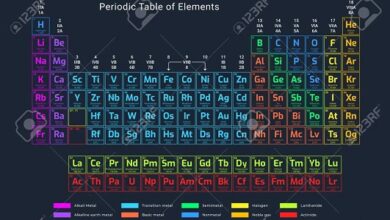What is Glutamine Purpose Foods Rich in Glutamine and Cautions
Glutamine
Glutamine is an amino acid that is present in large amounts in the body, being known as an immunonutrient, as it participates in the production of antioxidants and in maintaining the functions of the body’s defense cells, strengthening the immune system.
In addition, glutamine helps to improve the functions of cells in the intestine, balancing the intestinal flora and helping to treat problems such as constipation, diarrhea, colitis or Crohn’s disease.
It can be found in various foods such as meat, fish, eggs, legumes and some vegetables. In addition, glutamine can be found in higher concentrations, in the form of a nutritional supplement, in capsules or powder, and is usually sold in food supplement stores.
Purposes of Glutamine
1. Improve bowel function
It is the main source of energy for the intestine, as it stimulates the growth and strengthening of cells, which promotes the balance of intestinal flora and helps to prevent and combat problems such as constipation, diarrhea or bowel cancer.
In addition, by strengthening the beneficial bacteria in the intestine, glutamine also helps in the treatment of inflammatory bowel diseases such as colitis or Crohn’s disease.
2. It can help with cancer prevention
It is the main amino acid that participates in the production of glutathione in the body, an antioxidant that fights free radicals, preventing the emergence of some types of cancer. See how antioxidants help prevent cancer .
3. Prevent heart disease
Glutamine is an amino acid that acts as an antioxidant, helping to prevent heart diseases such as infarction, atherosclerosis or stroke, as it helps to combat excess free radicals, compounds produced in the body through smoking, stress, alcohol intake and processed foods, for example.
4. Strengthen the immune system
It is an important source of energy for the body’s defense cells, strengthening the immune system. Therefore, supplementation with this amino acid is recommended for people who are recovering from injuries, burns and surgeries, as it helps to accelerate healing and prevent infections.
5. Prevent injuries during training
By promoting an antioxidant effect in the body, glutamine can help reduce muscle damage after long-lasting and high-intensity training, promoting faster recovery. Get to know other supplements that also help with recovery after training .
It is important to note that, despite being commonly known to promote muscle mass gain, there is still no scientific evidence that glutamine supplementation provides this benefit.
Foods Rich in Glutamine
Top glutamine-rich foods include:
- Dairy products , such as milk, cheese and yogurt;
- Bovine meat ;
- Fish, such as salmon, tilapia, haddock, herring, anchovies or halibut;
- Eggs ;
- Legumes , such as soybeans, chickpeas, lentils or beans;
In addition, other foods of vegetable origin, such as rice, corn, spinach and beets are interesting options to include in the diet, as they have good amounts of glutamine.
How to take glutamine
These supplements are usually found in the free amino acid form, which is called L-glutamine, and the recommended daily amount varies according to nutritional needs and the practice of physical activities.
However, the indicated recommendation is between 8 and 15 grams daily, divided into 2 to 3 times throughout the day, along with water or fruit juice, and can be consumed before training or before going to bed.
It is important to remember that the intake of high amounts of amino acid supplements, such as glutamine, can cause kidney failure and, therefore, they should only be consumed with the guidance of a nutrologist or a nutritionist.
Cautions when using glutamine
People who have a kidney or liver problem should always consult a doctor before starting glutamine consumption, as this supplement can impair the functioning of these organs.


